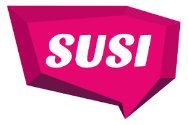-
Courses

Courses
Choosing a course is one of the most important decisions you'll ever make! View our courses and see what our students and lecturers have to say about the courses you are interested in at the links below.
-
University Life

University Life
Each year more than 4,000 choose University of Galway as their University of choice. Find out what life at University of Galway is all about here.
-
About University of Galway

About University of Galway
Since 1845, University of Galway has been sharing the highest quality teaching and research with Ireland and the world. Find out what makes our University so special – from our distinguished history to the latest news and campus developments.
-
Colleges & Schools

Colleges & Schools
University of Galway has earned international recognition as a research-led university with a commitment to top quality teaching across a range of key areas of expertise.
-
Research & Innovation

Research & Innovation
University of Galway’s vibrant research community take on some of the most pressing challenges of our times.
-
Business & Industry

Guiding Breakthrough Research at University of Galway
We explore and facilitate commercial opportunities for the research community at University of Galway, as well as facilitating industry partnership.
-
Alumni & Friends

Alumni & Friends
There are 128,000 University of Galway alumni worldwide. Stay connected to your alumni community! Join our social networks and update your details online.
-
Community Engagement

Community Engagement
At University of Galway, we believe that the best learning takes place when you apply what you learn in a real world context. That's why many of our courses include work placements or community projects.
Science & Technology Studies (Diploma)
Diploma in Science & Technology Studies
Centre for Adult Learning and Professional Development- Title of Award
- Diploma
- Course Code
- DTE1
- Delivery
- Blended Learning
- NFQ
- 7
- Award Type
- Minor
- Next Intake
- September 2026
- Duration
- 2-4 years, part-time
- ECTS Weighting
- 120
Why Choose This Course?
Course Information
The modular structure is designed with flexibility in mind, enabling students to balance study with work and other commitments and to accumulate credits over a time frame that suits their lifestyle. Learning is delivered via a blend of distance and online resources, on-campus tutorials and labs, and company-based projects.
This course aims to:
- provide students with a comprehensive grounding in the theoretical foundations of Science and Engineering
- introduce students to areas of applied and specialist knowledge found in today’s high-tech environments
- develop important managerial skills such as problem solving, decision making and advanced communication skills
The Diploma consists of 20 modules to be completed over a minimum of 2 and a maximum of 4 years (see the module chart for the Diploma/Degree below). The modules on offer include:
- Core modules which cover the foundations of Science, Engineering, Management and IT
- Electives which allow students to specialise in an area of particular interest to them
- Company-based projects to help students apply their learning in the workplace
Students who have successfully completed the Diploma can automatically progress to the Degree in Science & Technology Studies or one of the Diplomas listed below:
- Digitalisation of Manufacturing Processes
- Digitally Enabled Connected Medical Devices
- Intelligent Manufacturing Industry 5.0
- Manufacturing Automation
- Sustainability of Manufacturing Systems
Exemptions: Applicants who have completed accredited study in a relevant area may apply for exemptions. Credit may also be granted for demonstrable experiential learning. Exemptions may be granted up to a maximum of 5 modules in the Diploma cycle. Exemptions are considered by the programme board on a case-by-case basis.

Our courses are developed to address current and future skills requirements of the high-tech sector ensuring that our graduates are well positioned to withstand the challenges of working in a changing economic environment.
The course is primarily intended to support those seeking career advancement in a variety of high-tech industries such as medical devices, pharmaceuticals, biotechnology and manufacturing. It will also appeal to those with a personal interest in Science and Technology.
Assessment is through assignments, written exams and in some cases practical laboratory sessions. Exams take place at the end of each semester. All modules from the programme will be individually assessed.
The course is delivered by blended learning on a part-time basis. Candidates will receive learning materials in online format for each module. Materials will be specifically designed for independent study and will be supplemented by supporting reading material and interactive learning resources where appropriate. The course requires attendance on campus for approximately 10 hours per module, mainly on Saturdays.
Awards: Diploma in Science & Technology Studies - on successful completion of 20 modules or 120 ECTS.
Course Administrator
Tel: 091 494060
Email: sciencetech@universityofgalway.ie
If you do not meet the standard entry criteria for this course, you may gain entry through our Recognition of Prior Learning (RPL) policy. Applicants may also be able to earn module exemptions based on their prior learning. Find out more here.

In addition to developing content knowledge, this course aims to develop useful skills, known as Professional Transferable Skills (PTS). The importance of PTS is now widely recognised in the workplace. This is especially true of technology-based industries where content knowledge can quickly become outdated and therefore, transferable skills are exceptionally important. The following set of nine skills are considered to be the most important in the context of this course and are particularly advantageous at management levels:
- problem-solving
- critical thinking
- decision-making
- oral communication
- written communication
- team-working
- networking
- customer-centric skills
- creativity, innovation & entrepreneurship
Accreditations & Awards
Meet our Employers
Entry Requirements and Fees
Applicants under 21 years of age on January 1 in year of entry must meet the following minimum entry requirements: A minimum of HC3 in two subjects and passes in four other subjects at H or O level in the Leaving Certificate (or equivalent) including; English, Irish, Mathematics, a laboratory science subject i.e. Chemistry, Physics, Biology, Physics with Chemistry (joint) or Agricultural Science and any other subject recognised for entry purposes.
Applicants aged 21 years and older by January 1 in year of entry may enter as mature students. In this case a pass standard in ordinary/higher level Leaving Certificate Mathematics or equivalent is required. Apart from the requirement in Mathematics assessment of applicants will be on an individual basis to determine suitability to successfully undertake the course.
Applicants without a leaving certificate are encouraged to first complete the Foundation Course in Science, Engineering and Technology. Graduates of the Foundation Course are automatically eligible for entry to the Diploma.
Applications are made online via the University of Galway Applications System. This course is listed under Adult Learning Undergraduate\Postgraduate, CPD, Micro-credentials & Summer School Applications.
Please visit our How to Apply page for Application tips and Supporting Documents information.
Fees for Academic Year 2026/27
| Course Type | Year | EU Tuition | Student Contribution | Non-EU Tuition | Levy | Total Fee | Total EU Fee | Total Non-EU Fee |
|---|---|---|---|---|---|---|---|---|
| Diploma Part time | 1 | €4,460 | €140 | €4,600 |
There are several funding opportunites available for this course:
Adult Learning Tuition Scholarship
A fee scholarship of up to 30% may be available for students who wish to upskill for the purposes of re-employment. For more information download the 2025_26 Fees Scholarship Form.

Next Level Skillnet
This course has been approved for a fees subsidy of up to 40% for students whose company is a member of their network. For more information, contact Sue Davies at: sue@nextlevel.ie

SUSI Funding
The Degree in Science & Technology studies is now eligible for funding under the SUSI grants scheme. This Diploma comprises the first stage of the degree programme. Please refer to the Degree Curriculum section for information regarding Pathway B or Pathway C to meet the credit workload requirement. You can find more information regarding the SUSI funding here.
Why University of Galway?
World renowned research led university nestled in the vibrant heart of Galway city on Ireland's scenic West Coast.
Downloads
Meet Our Alumni
Introduction
The Diploma in Science & Technology Studies is a part-time course which focuses on the knowledge and skill requirements of high-tech industries.






























